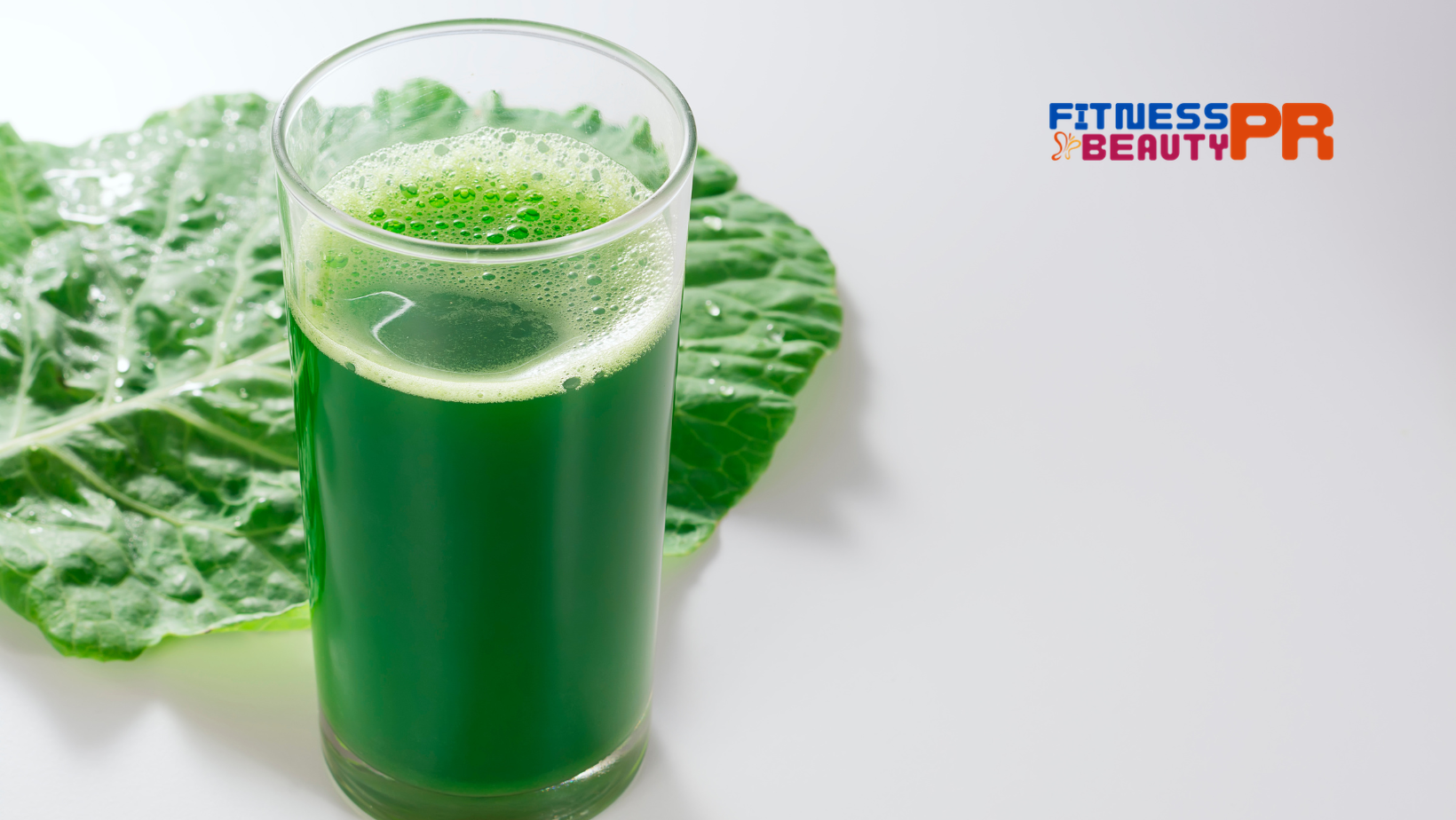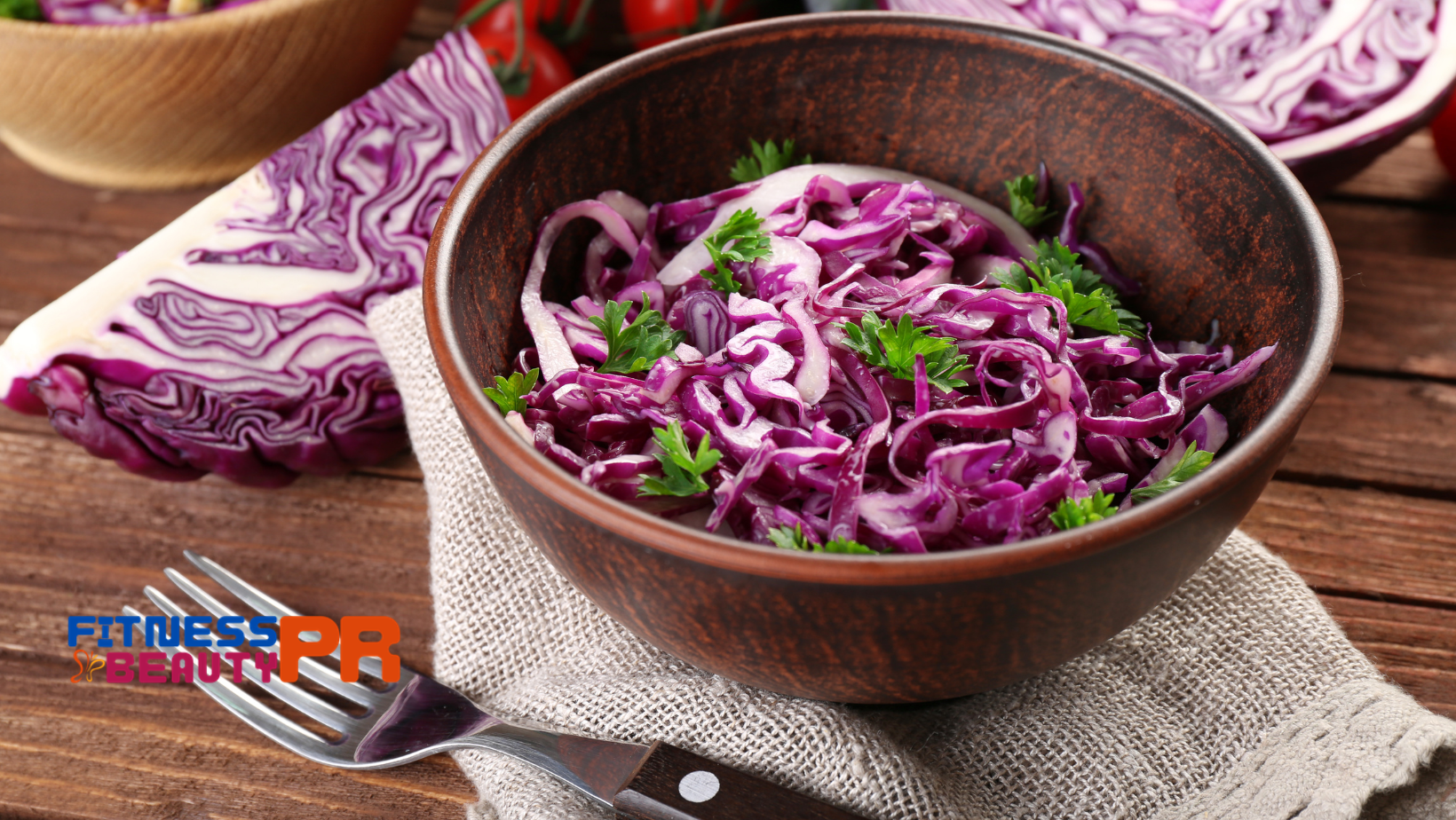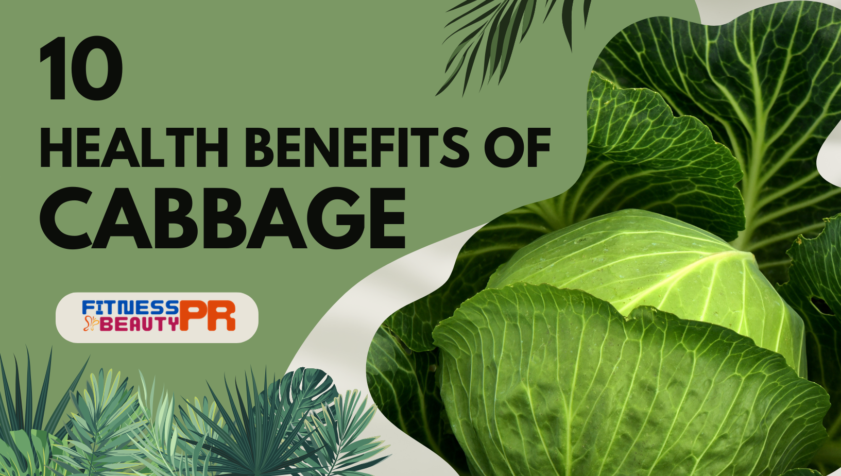Why should cabbage be on your plate? Compact with nutrients, cabbage combats inflammation, boosts heart health, and is a powerhouse for aiding digestion and weight management. This no-nonsense guide cuts through the fluff and brings you the concrete health benefits of cabbage, making it clear why your diet can benefit from this leafy ally.
Key Takeaways
-
Cabbage is a nutrient-dense food rich in vitamins C and K, antioxidants, and dietary fiber, contributing to immune support, proper blood clotting, and digestive health.
-
Consuming cabbage can reduce inflammation due to antioxidants like glutamine and sulforaphane and help in managing conditions such as arthritis through plant microRNAs.
-
The vegetable is beneficial for heart health, with components like phytosterols and anthocyanins that help reduce bad cholesterol and blood pressure; it’s also valuable for bone health, weight management, cancer prevention, skin health, and gut health through its fermented forms.

The Powerhouse of Nutrients in Cabbage
Cabbage, a type of cruciferous vegetable, is highly nutritious and offers numerous health benefits. Whether consumed raw or cooked in dishes like kimchi or sauerkraut, cabbage provides an abundance of vitamins and minerals. With approximately 25 milligrams per cup, it is particularly rich in vitamin C, which helps to boost the immune system and acts as an antioxidant while also aiding iron absorption and collagen production.
The green variety of cabbage is especially beneficial due to its high content of vitamin K1, essential for proper blood clotting by supporting enzyme function. With about 2.5 grams found in just 100 grams of raw leaves, dietary fiber contributes significantly towards improving digestive health when incorporating cabbage into one’s diet.
To these nutrients mentioned above that aid overall well-being, the cabbage contains powerful antioxidants such as polyphenols and sulfur compounds, which enhance its holistic properties. This reinforces the valuable role this plant plays in promoting good health through its wide array of nutritional components. The various types, including red and fermented variations, make it adaptable to any dish, presenting endless ways for individuals to enjoy the many benefits offered.
A Crucial Ally Against Inflammation
Chronic inflammation has been linked to numerous health conditions, but thankfully, there are natural ways to combat it. Cabbage is a type of cruciferous vegetable that can be beneficial in fighting this issue. It contains powerful antioxidants like glutamine and anthocyanins, known for their ability to reduce inflammation and promote healthier tissues.
One compound found in cabbage, sulforaphane (SFN), has the potential to inhibit the production of pro-inflammatory mediators within cells, making it an effective anti-inflammatory agent. By incorporating more cabbage and other cruciferous veggies into your diet, you may see improvements in managing chronic inflammation.
Recent research suggests that plant microRNAs present in cabbage have therapeutic effects by regulating genes involved with inflammatory responses. In fact, a study using mice with rheumatoid arthritis showed promising results when given miR172 from cabbage – their symptoms decreased significantly after treatment with this naturally occurring anti-inflammatory molecule derived from plants.
Cabbage: A Natural Aid for Heart Health
In the quest to combat heart disease, cabbage has emerged as a promising ally for maintaining cardiovascular health worldwide. This unassuming vegetable contains phytosterols that can reduce LDL cholesterol levels by competing with its absorption in the digestive system.
Cabbage’s potassium content plays an important role in keeping blood pressure under control and preventing hypertension. It counteracts sodium’s effects and promotes relaxation of blood vessel walls, supporting overall heart health. Boiled cabbage is especially beneficial due to its low sodium levels while still providing essential potassium for proper heart function.
Red cabbage stands out as a potent source of anthocyanins, which have been linked to reducing the risk of developing cardiovascular diseases. Together with other compounds such as flavonoids and polyphenols found in all types of cabbages, it offers comprehensive benefits for improving heart function and minimizing potential risks associated with high blood pressure or other forms of cardiac ailments.
Harnessing the Digestive Benefits of Cabbage
A strong digestive system is essential for overall wellness. One way to support your digestion is by incorporating cruciferous vegetables, such as cabbage, into your diet. The high fiber content in cabbage contains insoluble fiber, which helps maintain a healthy digestive system and regulate bowel movements.
Adding a serving of chopped cabbage to your meals can provide several benefits for the health of your gut.
-
It increases stool bulk with dietary fiber, promoting regular digestion
-
Cabbage sustains the well-being of the entire digestive tract
-
It encourages consistent bowel movements
-
Cabbage helps prevent common gastrointestinal issues
To fully reap these advantages from consuming cabbage, it’s recommended to increase intake and stay hydrated gradually. This will help minimize any potential discomfort, such as gas or bloating, that may occur during its consumption. So next time you plan out your meal options, don’t forget about adding some diced or shredded pieces of this nutritious vegetable for an added boost to promote good intestinal function.
The Immune-Boosting Effects of Eating Cabbage
In today’s world, having a strong immune system is crucial. That’s why it is important to include foods that naturally improve our immunity. Cabbage, known for its high concentration of vitamin C, can play an essential role in strengthening your body’s defense mechanism.
Vitamin C found in cabbage acts as an antioxidant and supports the immune system by fighting off harmful elements. Red cabbage has even more significant benefits due to its enhanced capacity for antioxidants, with 57 mg per 100 grams consumed. This means that one cup of cabbage fulfills over one-third (36%) of the recommended daily value for vitamin C intake – ultimately enhancing your immunity.
Apart from aiding the immune system through increased levels of Vitamin A & E, which assist against diseases stemming from free radicals, these same nutrients are present whether you eat raw or cooked red cabbages, making this vegetable a fantastic ally.

Cabbage’s Role in Weight Management
Cabbage can be a beneficial addition to one’s diet for weight management. With only 25 kilocalories per 100 grams in its raw form and even less at 17 calories per cup when boiled, this low-calorie vegetable is ideal for those looking to maintain a healthy eating pattern without consuming excess calories.
In terms of energy density, cabbage falls on the lower end as it provides minimal caloric intake relative to its weight. This quality helps create the necessary calorie deficit required for weight loss goals. Being naturally low in fat content aids in managing body weight effectively.
Including cabbage in meals offers multiple benefits, such as:
-
Cabbage consumption adds bulk to dishes without significantly increasing overall calorie count, which promotes satiety and supports efforts towards controlling body mass.
-
The high water content found within green cabbage also contributes towards keeping an individual well-hydrated.
-
Thanks to its fiber-rich composition, incorporating more vegetables like green cabbage into one’s daily food choices have been associated with decreased risks of excessive pounds or buildup of unwanted fats – making it an especially valuable choice when aiming for successful long-term maintenance of optimal body shape and size.
Enhancing Bone Health with Vitamin K-rich Cabbage
Cabbage plays a significant role in promoting bone health, which is crucial for overall well-being. One reason for this is its high content of vitamin K, an essential nutrient that supports both blood clotting and bone maintenance.
The presence of vitamin K in cabbage has several benefits for bone health, including modifying proteins found in the structure of bones. It also aids in better absorption of calcium and acts as a coenzyme to support enzymes responsible for carboxylation, a necessary process related to specific bone proteins like osteocalcin.
By regularly consuming cabbage, individuals can reduce their risk factors associated with various disorders related to bones. Studies have shown that those who consume higher levels or sources such as cabbage rich in vitamin K1 experience improved mineral density and lower chances of fractures – particularly among older adults or patients with osteoporosis.
Incorporating more cabbage into one’s diet provides valuable nutrients needed for maintaining strong bones. Some examples include 36 milligrams (56% daily value) of calcium per cup when boiled and enough quantities of vitamin K in every serving – making it an ideal food choice to prevent osteoporosis.
The Cancer-Fighting Potential of Cabbage
In the fight against cancer, a comprehensive approach is necessary, and diet plays a crucial role. Cabbage contains glucosinolates, which can inhibit the development of certain cancers and induce cell death in cancer cells when broken down into active compounds.
Research spanning three decades consistently shows that eating cruciferous vegetables like cabbage and Brussels sprouts has been linked to a lower risk of various types of cancer, such as breast, lung, stomach, colon, and rectal cancers.
This is because cabbage is rich in antioxidants like vitamin C and kaempferol, which protect against damage caused by free radicals involved in chronic diseases, including cancer. One compound found specifically in cabbage, sulforaphane, has demonstrated anti-cancer effects while also potentially improving gut health through its ability to regulate microbiota.
Overall, eating more cruciferous veggies like cabbage can significantly lower one’s risk of developing different forms of cancer due to their high nutrient content, such as vitamin C, along with other protective compounds mentioned above.

Cabbage for Better Skin: The Ascorbic Acid Effect
The health of our skin is not just about its appearance, but it also reflects our overall well-being. Luckily, cabbage contains a generous amount of ascorbic acid or vitamin C, which can greatly benefit the skin. Vitamin C is crucial for collagen production and maintaining healthy tissues in the skin.
Vitamin C levels have been linked to improved skin quality due to its role in promoting collagen synthesis and enhancing existing collagen structure. Including cabbage regularly in your diet can lead to vibrant and glowing skin.
The antioxidant properties of vitamin C protect the skin by counteracting harmful free radicals that cause damage from external factors such as pollution or UV rays. So make sure you don’t overlook this nutrient-dense vegetable if you want a healthier and more radiant-looking complexion.
How Fermented Cabbage Boosts Your Gut Health
Fermentation not only adds variety to flavors but also enhances the health benefits of fermented foods. Probiotics found in fermented cabbage products like kimchi and sauerkraut aid in strengthening the gut by boosting immunity and promoting the production of crucial nutrients such as vitamins K2 and B12.
The lacto-fermentation process used for making kimchi and sauerkraut results in Lactobacillus bacteria which can improve gut microbiota, alleviating symptoms associated with conditions like irritable bowel syndrome. Bioactive compounds present in fermented cabbage possess anti-inflammatory properties, while lactic acid bacteria help support the immune system, potentially reducing inflammation.
Consuming 75 grams of sauerkraut daily can optimize these benefits on overall health. Some specific perks offered by including this type of fermentation include an increase in beneficial gut flora levels, a decrease in blood sugar levels, and a reduction in body fat. Along with fighting against inflammation.
To give your digestive system a boost, try incorporating some form of fermented cabbage into your diet.
From supporting heart health to enhancing bone health, boosting immunity, and promoting gut health, cabbage proves to be a versatile and nutrient-dense vegetable. With its rich nutrient profile and health-enhancing compounds, cabbage certainly deserves a regular spot in our diets. So, the next time you’re shopping for veggies, make sure to pick up some cabbage and enjoy its myriad health benefits.
Frequently Asked Questions
What does cabbage do to the body?
Consuming cabbage can offer multiple advantages for one’s health, including decreased chances of developing diabetes, obesity, and heart disease. It promotes a radiant complexion and boosts energy levels while aiding in weight management. It aids digestion and contributes to lowering “bad” cholesterol levels as well as regulating blood sugar.
Is cabbage healthier cooked or raw?
While cooked cabbage is rich in antioxidants known as glucosinolates, raw cabbage contains more Vitamin C. Therefore, choosing raw cabbage over its cooked counterpart can help maximize antioxidant intake.
On the other hand, cooking cabbage leads to higher levels of glucosinolates, which offer various health benefits. Incorporating both forms into one’s diet can provide a diverse range of nutrients and promote overall well-being.
Why is cabbage a superfood?
Cabbage can be considered a superfood because of its rich nutrient profile, including significant amounts of both vitamin C and K. To promote digestive health, it also supports the heart through various means. Its notable levels of soluble and insoluble fiber play a crucial role in maintaining a healthy digestive tract.
Is it good to eat cabbage every day?
Yes, it is good to eat cabbage every day. It can decrease the risk of diabetes, obesity, heart disease, and overall mortality and promote a healthy digestive system.
What nutrients are found in cabbage?
Cabbage is a highly nutritious vegetable option due to its abundance of vitamins C and K, dietary fiber, and antioxidants. It contains essential nutrients that promote good health, such as fiber, which aids in digestion. It boasts powerful antioxidants.
Explore Home Gym Essentials
-
Body-Solid GFID100 Heavy Duty Adjustable Workout Bench
$395.00Original price was: $395.00.$315.00Current price is: $315.00. -
Garmin Venu 2S GPS Smartwatch
$399.99Original price was: $399.99.$299.99Current price is: $299.99. -
SUUNTO 5 Peak GPS Sports Watch
$199.00 -
Hyperwear Softbell Home Gym Set
$249.99 -
Bowflex Adjustable Dumbbells: SelectTech 552 with Adjustable Weights
$549.00Original price was: $549.00.$379.00Current price is: $379.00. -
Fitness Factory Powerline Flat Bench / Incline Bench
$379.00Original price was: $379.00.$293.00Current price is: $293.00.




















